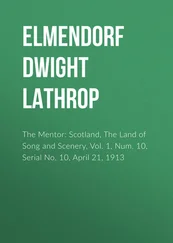He asked one of the pupils, an eighteen-year-old girl, to read it again. She bends over the book and begins to read. But at that very moment a resigned sigh is heard from one of the other pupils, who is no longer capable of suppressing it. Loud and clear, on the verge of a savage roar, so insolent that it made him give an inward start, but despite the fact that the class peeked cautiously up at him, on the sly, he chose to ignore it and waved the eighteen-year-old girl on. She read. A teenager with a dreary, rather bashful face and sweet, calf-like voice that seemed to search for the words, which she recited somewhat unsteadily and fumblingly, either because she did not understand what she was reading, or because a layer of dew had coated her eyelashes, brought about by an unendurable and glaringly unjust drowsiness that was blinding her like tears, so that she could not see clearly but had to look for the words, one by one. ‘Relling (goes up to Gregers and says): No-one shall ever fool me into thinking that this was an accident. Gregers (who has stood horror-stricken, twitching convulsively): Nobody can say for certain how this terrible thing happened. Relling: The wadding has burned her bodice. She must have pressed the pistol straight at her breast and fired. Gregers: Hedvig has not died in vain. Did you not see how grief released the greatness in him? Relling: Most people show a certain greatness when they stand grieving over a dead body. But how long, do you think, this nobility of his will last? Gregers: Why shouldn’t it last and grow all his life! Relling: Within nine months little Hedvig will be nothing more to him than a fine pretext for speechifying. Gregers: You dare say that about Hjalmar Ekdal! Relling: We’ll talk again when the first grass has withered on her grave. Then you will hear him spouting phrases like “the child prematurely torn from the paternal bosom”, then you can watch him wallowing in sentiment, self-admiration and self-pity. Wait and see! Gregers: If you are right and I am wrong, life is not worth living. Relling: Oh, life can still be quite alright, if only we could be left alone by these damn bill collectors who force themselves on poor people with this so-called claim of the ideal. Gregers (with a vacant look in his eyes): In that case I’m glad my destiny is what it is. Relling: What, then, is your destiny, if I may ask? Gregers (about to leave): To be the thirteenth at table. Relling: The hell it is.’
He listened to this rather stammering reading with increasing irritation and became completely paralysed. Not because of the reading, but because of the aggressive, suppressed groan heard in the classroom right before the girl began to read. Which he had not remarked upon. It so paralysed him that he was unable to say ‘Thank you’ when at last she reached Gregers Werle’s epoch-making words, which for him had now become the key to the play and, more, were the entrance to that clearing where the tracks he believed to have discovered were to be found and, pointing further inward, were the reasons why he had asked these lines to be read anew, because he hoped that when he got to that remark again, he would once more see this clearing and be able to follow the tracks inward. But when she got there he could not bring himself to stop her and let her go on, in her stammering fashion, to read the final, concluding exchanges in The Wild Duck as well. He was so vexed that he did not manage to concentrate on the play. That suppressed groan. Aggressive in all its youthful intensity. Which he had pretended not to hear. It was humiliating, although he hoped the pupils attributed his non-censure to his being so patronising that he did not bother about such trifles. But that was not the reason, as he knew in his bones. He had simply not dared to speak up, and the moment that dawned on him he had felt utterly paralysed and incapable of thinking clearly. Damn it all! He would not have dared protest against it under any circumstances, that he had to admit. And it wasn’t the first time — every time the class had got to the point where one or more of them burst out in that way, giving vent to their inward righteous indignation, he gave a start and pretended not to hear it. Because he feared it. That youthful, self-righteous groan. He was afraid of what it could trigger if he rose up against it. He simply had to realise that he was afraid of them and did not dare to criticise a pupil who groaned at his teaching. He simply had to realise that he did not dare look sharply at the pupil who had taken the liberty of heaving such a bitter, heartfelt sigh at their having yet once more, in the same class hour to boot, to reread the conclusion to The Wild Duck , and then coldly and condescendingly reprimand him with, Save your breath, pay attention! And it was not because of cowardice; rather, he saw his fear as an expression of the shaky structures he himself represented, necessitating a certain caution on his part, not least because his young pupils, for all their arrogance, had no clear idea of the social force they represented. Hence he could certainly allow himself to nettle them with his exemplary teaching, but he could not provoke them so deeply that they would rise in protest and tell him they were not going to put up with it any longer. He feared the moment they would stand up, slam their desks, and demand respect for their worth, because then he would be helpless. For it was beyond doubt, after all, in view of the existing circumstances, that they were the ones who were right and he was wrong. His teaching did not measure up, because the assumptions he started from did not apply to them, and it was only a question of time, he feared, until it would be equally clear to everyone that his mission, already today quite painful, would be made superfluous. But he allowed himself nevertheless to feel an intense unease at the fact that this was the case. He let the irritation rise to his head and paralyse his tongue at the least reminder of the real state of affairs, the source of his fear. Like now. When the eighteen-year-old girl had come to the end of her stammering reading, he merely sensed an intense irritation, knowing that he was no longer capable of pursuing the track he just minutes before thought he had discovered but found no precise language for. And so he looked at his watch and said, I’m afraid we’ll have to conclude our study of The Wild Duck for today, I have to use the rest of the class hour for some practical announcements. Experienced as he was, he managed to spin this out so that the school bell rang at the very moment the last announcement concerning homework, paper topics etc., was made, and the pupils could close their school editions of The Wild Duck with a bang and throw them back into their satchels, while he himself quietly closed his book. The pupils got up from their desks and stood there at ease, tall and ungainly or broad and blustery, twenty-nine young anarchical men and women who were now leaving their isolated classroom, looking forward to the break as they passed him, directly below the podium, some already with their ears plugged into their Walkmans and snapping their fingers. He, too, stood up, feeling tired, spent, and deeply disappointed. The pupils passed by in small groups, taking no notice of him as they chatted cheerfully, representing wholesome, fearless Norwegian youth to an all but overwhelming degree, now liberated from the unnatural and antiquated rituals of a double period. Suddenly he called after them: But … Till next Monday. Then we will finally get to the bottom of things. Then we will understand Gregers Werle’s shudderings. Those convulsive twitchings the text talks about. But they passed him without giving the least indication that they had understood what he was saying, and as for his last two remarks, they probably didn’t even hear them, because by then he could only see the backs of the last pupils disappearing, so that he, he had to admit, stood utterly alone in the classroom, calling after them, though that was not exactly a reason to feel annoyed — it is, after all, just a slightly comical posture I’ve got myself into and which they did not even notice, he added to himself.
Читать дальше










